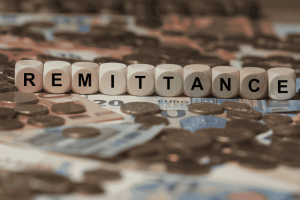In today’s fast-paced world, keeping your finances in check isn’t just about tracking your daily expenses or checking your bank balance. It’s about stepping back regularly to review the bigger picture—your income, savings, debt, insurance, and future goals. Just like you go for a medical check-up to ensure everything is running smoothly, a financial check-up every six months can help you catch issues early, stay on track, and adjust to life’s changes. Whether you’re managing expenses in Jakarta, saving for a home in Singapore, or investing through mobile platforms in India, a biannual review is a powerful way to stay financially healthy.
Why a 6-Month Review Makes Sense

Unlike daily or monthly budgeting, which focuses on short-term management, reviewing your finances every six months helps you assess progress toward long-term goals, adapt to changes in income or expenses, and make proactive adjustments to your strategies.
In many parts of Asia, this rhythm fits well with mid-year bonus seasons, tax updates, or annual insurance renewals. For instance, employees in Malaysia or the Philippines often receive bonuses mid-year, making it a good time to reassess financial decisions. Similarly, the financial year in countries like India and Thailand can influence when it’s most practical to evaluate savings and tax-related matters.
Income and Expenses: Recalculate the Basics
Has Your Income Changed?
Start with your earnings. Whether you’ve received a raise, bonus, or started a side hustle, any change in income should be reflected in your financial plan. Update your monthly budget to include new income sources or adjust for any reductions.
In cities like Bangkok, where gig work is increasingly popular, part-time income from ride-hailing or freelance platforms like Fastwork or Workana may not be consistent. But it still deserves a spot in your financial plan—even if only to decide how to allocate the extra cash (savings, debt repayment, or investments).
Are You Spending More Than You Planned?
Expenses tend to creep up without notice. Maybe your Grab rides have increased, or you’ve added a few too many streaming subscriptions. Go through your digital wallet history—be it GCash in the Philippines, ShopeePay in Malaysia, or PhonePe in India—and identify spending patterns.
Quick checklist:
-
- Compare your last 6 months of expenses to your original budget.
-
- Highlight irregular or one-time expenses that may repeat.
-
- Reallocate excess spending from non-essentials (e.g. dining out) to savings or debt reduction.
Savings and Emergency Fund: Are You Prepared?
Emergency Fund Check-Up
Life is unpredictable—medical bills, job changes, or home repairs can come out of nowhere. Make sure your emergency fund is still adequate.
-
- Ideal target: 3 to 6 months’ worth of essential expenses
- Ideal target: 3 to 6 months’ worth of essential expenses
-
- Storage: Keep this in an accessible, low-risk account. In Singapore, many use CIMB FastSaver or DBS Multiplier accounts. In India, a liquid mutual fund might be a smart option.
Adjust Savings Goals
Goals can shift over six months. Perhaps you’ve added a new travel plan, are planning for a wedding, or want to increase your home down payment savings.
-
- Are your existing savings goals on track?
-
- Do you need to increase your monthly contributions?
-
- Can you automate these via your bank or fintech app?
For example, users of Fi Money (India) or StashAway (Malaysia/Singapore) can set savings targets and automate monthly contributions, making consistency much easier.
Debt and Liabilities: Review and Reduce
Check Credit Card and Loan Balances
Interest rates can eat into your budget if not managed carefully. Take stock of any outstanding credit card balances, personal loans, or BNPL (Buy Now, Pay Later) accounts.
In countries like Indonesia, BNPL services from Akulaku and Kredivo are widely used, especially for e-commerce purchases. While convenient, the repayments should be factored into your overall debt strategy.
Ask yourself:
-
- Are you carrying balances month to month?
-
- Have you missed any payments?
-
- Can you consolidate or refinance at better rates?
Credit Score Awareness
Your credit score influences your ability to get a loan or mortgage. Check your score through services like CTOS (Malaysia), Credit Bureau Singapore, or CIBIL (India) to make sure you’re in good standing.
Insurance and Protection: Update What Matters

Life and Health Insurance
Have your life circumstances changed? Marriage, children, or new financial responsibilities may require you to update your insurance policies.
In Asia, where private health expenses can be high, regular reviews ensure you have adequate coverage. Look into:
-
- Sum assured: Is it enough?
-
- Riders or add-ons: Do you need critical illness or income protection?
-
- Employer coverage: Has your job role changed? Are your workplace benefits still valid?
Many in Hong Kong or Singapore complement their employer health plans with private Integrated Shield Plans or Medisave-approved add-ons.
Property or Vehicle Insurance
For homeowners or vehicle owners, insurance renewals usually come once a year. But it’s wise to review policy terms and premiums every six months in case you can bundle services, increase deductibles, or get better coverage elsewhere.
Investment Review: Evaluate and Rebalance
Portfolio Performance
Markets shift quickly. Check how your investments are performing and rebalance if needed.
If you invest through platforms like Groww (India), Syfe (Singapore), or MyTheo (Malaysia), review:
-
- Allocation between equity, bonds, and cash
-
- Overperformance or underperformance of assets
-
- Need to rebalance based on changing goals or risk profile
For example, if your stock portfolio has grown significantly, your risk exposure may be too high. Rebalancing to maintain your intended asset allocation can protect you from unnecessary volatility.
New Investment Opportunities
Stay updated on financial products available in your region. In the last few years, new digital investment platforms have opened up access to:
-
- REITs and fractional real estate (e.g., RealVantage in Singapore)
-
- Robo-advisors with Shariah-compliant options in Malaysia
- Robo-advisors with Shariah-compliant options in Malaysia
-
- Digital gold saving plans in India and Indonesia
- Digital gold saving plans in India and Indonesia
Six-month reviews are a good opportunity to explore and compare these tools, especially if your risk tolerance or income has changed.
Financial Goals and Life Plans: Reflect and Realign
Six months is enough time for life to change—personally and financially. Have any of these events occurred?
-
- A new family member
-
- Job change or relocation
-
- Education plans
-
- Retirement age goals shifting
-
- Planning to start a business or side hustle
Any of these may require a shift in your savings, insurance, or investment approach. Use this review period to adjust your goals based on real life—not just numbers.
Bring It All Together: Set Actions, Not Just Reflections
A financial check-up only works if it ends with actionable steps. After reviewing your six-month checklist, create a simple action plan:
-
- Update your budget and automate transfers
-
- Rebalance your investment portfolio
-
- Cancel unused subscriptions
-
- Compare insurance premiums or switch providers
-
- Review your credit card usage and reduce interest exposure
Use reminders, apps, or spreadsheets to stay on track until your next review. If you’re unsure about certain steps, consider speaking with a local financial advisor—many offer free consultations or low-cost packages through fintech platforms.
Keep Progress in Focus

Financial health doesn’t happen overnight. It’s built through habits, reviews, and timely adjustments. Setting aside just an hour twice a year to run through a structured checklist can prevent small issues from becoming major setbacks. It also helps you celebrate progress—maybe you’ve reduced debt, saved more than planned, or started investing for the first time.
So whether you’re managing your money in Manila, investing from Bangalore, or saving for retirement in Kuala Lumpur, take control of your financial future by checking in—consistently, clearly, and with purpose. Your six-month review may just be the most valuable appointment you make this year.









